One in four people in the UK will experience a mental health problem each year, with anxiety and depression the most common disorders.
These statistics from the National Centre for Social Research raise important equality and accessibility questions for all service providers, not least train operating companies (TOCs).
Empowering disabled people to use the railways has long been on the radar of TOCs, but campaigners point to an historic disparity whereby mental health has not received the same level of attention as physical disability.
Indeed, this was the message to delegates at the first ever Mental Health and Transport Summit, sponsored by the Department for Transport (DfT) and which took place in London in February.
Because using public transport can often be a stressful and bewildering task at the best of times, Transport Minister Andrew Jones’ keynote speech was warmly welcomed - it called on TOCs to play catch-up by bringing down the barriers that prevent those who experience anxiety, depression and panic attacks from accessing the rail network.
“We didn’t really know what to expect on the day, but we were very pleased with the turnout and the level of engagement,” says Laura Whitehurst, partnerships manager at Anxiety UK, which co-organised the summit with Derby-based charity Mental Health Action Group (MHAG).
“Other mental health charities aren’t necessarily covering this issue, and we saw a huge gap. Plus the amount of service users contacting us on a daily basis saying how isolated they are because they can’t use public transport is overwhelming, so we saw a desperate need to address the issue.”
More than 100 delegates representing all forms of public transport were invited to attend the summit, after taking part in a survey conducted by MHAG last year. The survey found that although the appetite to improve provisions for those with mental health difficulties is strong, existing knowledge within the industry falls a long way behind, hindering attempts to make services more accessible to this large demographic.
“Overwhelmingly, most people said they’d had absolutely no training, which is crucial to helping people understand what the issues are,” says Whitehurst.
“The event managed to open people’s eyes to how ridiculous the situation is. Delegates were asked to pledge what their organisations are going to do over the next year, which we are collating to produce a report for the DfT to use in its forthcoming accessibility action plan.”
As someone who has herself experienced anxiety and depression for several years, Whitehurst is well placed to highlight the inadequacy of current customer care within the rail industry, and how simple and inexpensive measures can be put in place to tackle the problem.
Her personal testimony, she says, is typical of thousands of other people whose reluctance to use public transport is entirely avoidable.
“If you don’t receive the right assistance when on a train or a bus, and you have a panic attack, it’s easy to associate the panic attack with the mode of transport. If you are not assisted by sympathetic staff then it could prevent you from using public transport in future.
“Anxiety can leave people quite confused and overwhelmed at a busy station, and being able to find someone and tell them that they’re struggling with a disorder is often what they need. People tell us that staff are often unhelpful or unwilling to assist them, whereas someone in a wheelchair would most likely be taken to the train.
“In my talk at the summit I gave an example of when I was at an airport, which can be quite frightening places when they are busy and have long queues. I got in touch with their disability team who could only offer me the use of a wheelchair, which wasn’t really the most appropriate solution for my condition. Only 8% of people who consider themselves disabled actually use a wheelchair, so it makes no sense to me to have that as the default response for every disability.
“The solution really was to offer the exact same as for people in wheelchairs, but minus the wheelchair. Letting people go into priority lanes and allowing them to embark first or last are the things that (ultimately) would really help someone with anxiety have the assistance they need.”
Whitehurst adds: “I recently interviewed someone from one of the largest TOCs for our quarterly magazine. I asked her if she would recommend that someone who has panic attacks should speak to a member of staff on the platform before they board a train, to make them aware.
“Her response was: ‘No, we would strongly encourage them not to get on the train because it’s really costly for us to make unscheduled stops,’ which is absolutely shocking. You wouldn’t say that to someone with asthma or epilepsy who feared an attack, and it would be extreme discrimination to prevent someone boarding because they feared having a panic attack.”
As well as exposing the chronic lack of understanding that pervades at some levels of management, Whitehurst’s story also touches on two other issues that have contributed heavily to the stubborn resistance to tackling mental health accessibility head-on.
Ignoring the needs of someone in a wheelchair or with any physical disability would be visible and direct discrimination, she suggests, making it a far more blatant transgression than failing to consider a call for help from someone with a ‘hidden’ disability such as anxiety.
Whitehurst adds that those with mental health problems also have to combat the suspicion and stigmatisation of a small (but vocal) minority who feel they are less deserving of assistance if their affliction is not visible. This means that public attitudes towards mental illness must also change, to thus bring more pressure to bear on transport providers to change their ways.
“It is something which is hidden - you can see a person and not know they’re suffering,” she says.
“At the summit we discussed the metaphor of ‘What would be our ramp?’ for helping people with a hidden disability. That could be as simple as helping someone in the midst of a panic attack.
“But if you take away the wheelchair, you take away something which shows the world you have a disability. There is a danger, sadly, that if you give assistance or let someone queue jump who doesn’t have a wheelchair, people will question it in the same way that blue badge holders with a disability that isn’t immediately obvious are the target of people’s anger in supermarket car parks. It is about public perception as much as transport providers.
“A lot of people can be quite cynical and say ‘of course we’d all like someone to carry our bags to the train or get free water or a seat to sit down on’. But it’s so debilitating to be in that situation, and we’d much prefer not to be.”
Despite the ‘hidden’ nature of mental illness, the solution to making rail journeys easier is not an intractable problem, explains MHAG Co-Ordinator Niki Glazier. However, any solution will require human interaction and a physical staff presence, at a time when many customer-facing activities such as ticketing are being automated.
“It can be split into formal and informal assistance,” she says.
“Formal assistance would be that staff have to be trained in order to feel confident to offer help, and recognise when help should be offered. The human reaction is to back off if someone is feeling anxious, so we must empower staff to act. Using flashcards that are recognised by train guards to subtly communicate individual needs is also an example of formal assistance.
“Informal help would be to turn up at a railway station and be able to approach someone and get a sympathetic or more welcoming response. You only have to do something small to make a big difference.
“It relies on human to human contact, though, and automation can be exclusive in this case. At smaller stations staff numbers have been reducing, which is a big no-no for people who need that comfort. Nothing replaces the human touch.
“My feeling is that a line has been drawn in the sand, and we now need buy-in from senior management at the very top.”
The calls from campaigners have not completely fallen on deaf ears, and there is clear evidence that some TOCs are being more proactive than others.
In February 2015 First TransPennine Express became the first train operator to use the Blue Assist initiative (www.blueassist.org.uk), which helps people with a range of hidden disabilities to discreetly communicate to on-board staff what they need to make their journey more comfortable. For example, presenting a small blue card to a ticket inspector can convey the need for more patience, or that an individual suffers a condition that makes it hard to speak.
It is hoped by Anxiety UK and MHAG that the example set by TPE is followed by other TOCs, enabling more passengers to come forward and ask for the assistance they need.
Another initiative the organisations would like to see introduced is the presence of mental health first aiders - staff trained specifically to identify and help those with a psychological disorder, in the same way that physical first aiders operate.
As much as it being the moral imperative of TOCs to adopt these measures, Whitehurst says that increasingly it is becoming an economic and legal one. At the summit the legal team from national mental health charity Mind gave a briefing on what constitutes direct and indirect discrimination against someone with a hidden disability, and how transport providers could fall foul of the law if more is not done to change the way they approach their needs.
It also represents an opportunity for TOCs to increase passenger numbers - excluding up to one in four of the UK population could mean losing out on millions of pounds of revenue.
“I think people are unaware that there could be legal implications for breaching various laws,” adds Whitehurst.
“But it’s difficult because we don’t have any specific legislation behind us, and the Equality Act (2010) can be interpreted in a number of ways. It is easier to provide physical assistance, as what people need with mental conditions can vary a lot.
“But mental health should be given full parity. Hopefully the direction of travel is going towards more compulsory measures, and perhaps it could start to be rolled out in franchise terms.
“It also makes strong financial sense due to the amount of people in contact with us every day asking what assistance they can have on the trains. If we have to say that you can get on with this operator and you get this, but you will get nothing with another operator, then they will travel where the assistance is… or not at all.
“On a personal level, when my anxiety was at its worst there was no help getting buses or trains, so I used taxis everywhere and ran up a debt of £2,346.60 in just one year. That money could have gone on public transport - and that was just one person for one year.
“There will come a point when TOCs need to do this, because either there will be a discrimination case or other providers will lead the way and shame them.”
The rail industry has invested heavily in installing aids for physical accessibility. The time has now come for psychological accessibility to receive equal billing, and for the railways to show national leadership in bringing about change across wider society.
For more information on the campaign to end mental health discrimination, visit: www.time-to-change.org.uk
- This feature was published in RAIL 798 on April 13 2016.

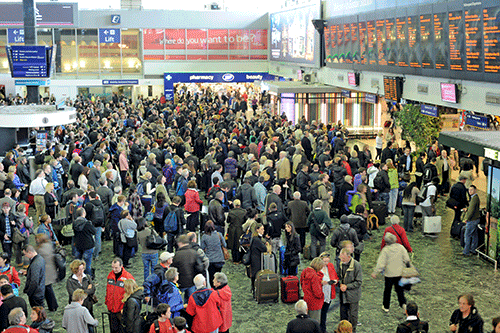
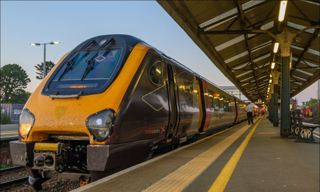
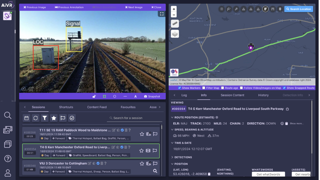
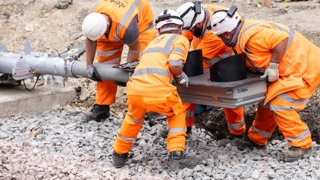
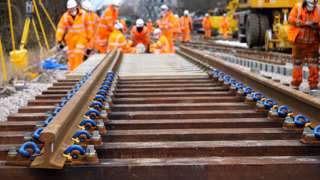










FrankH - 29/06/2016 00:57
"You wouldn’t say that to someone with asthma or epilepsy who feared an attack, and it would be extreme discrimination to prevent someone boarding because they feared having a panic attack.” If your travelling by air and have health issues you need a note from your doctor stating you are fit to travel, otherwise they'll not let you on. The industry is spending millions on making itself accessable for all, lifts, ramps, wheelchair access and spaces on trains and stepless access into carriages. Anyone who thinks they may suffer whilst on a train should not board or at the very least have someone with them to assist.